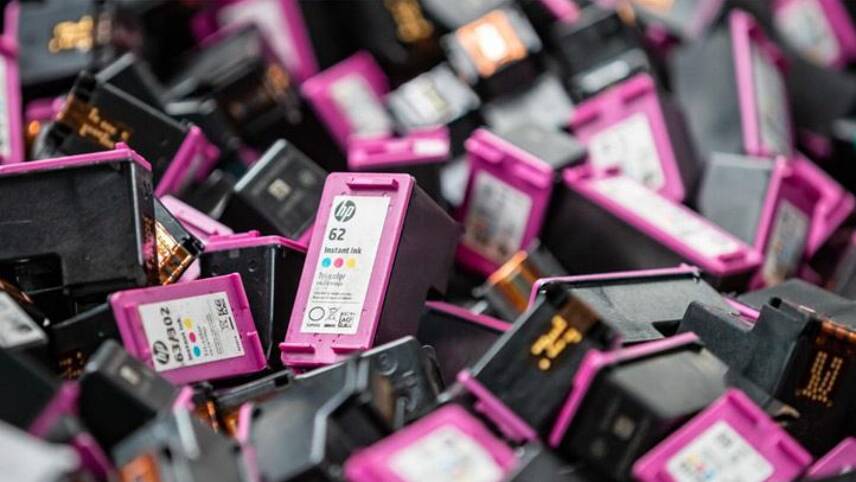Register for free and continue reading
Join our growing army of changemakers and get unlimited access to our premium content

The recycling scheme started in the US and has been successful so far
Under the scheme, individuals or businesses can return used cartridges at participating retailers or post them back to HP directly, for free. Cartridges are cleaned and refilled where possible and, where not, recycled. HP claims that the recycling process is closed-loop – i.e. the processed material is used to make new HP products.
According to its latest sustainable impact report, HP sourced more than 25,000 tonnes of post-consumer-recycled plastics for its packaging in 2019 – equivalent to 9% of its total annual plastics use for packaging.
The recycling scheme has been operating for several years and has expanded from its initial launch in the US. To date, more than 875,000 used printer ink cartridges have been collected under the initiative. Nations which will benefit from the broader rollout include Argentina, Chile, Papua New Guinea.
HP is also planning to extend its broader e-waste and supplies recycling offering to Latin America and the Asia Pacific Japan region in the coming months. The offering is digital – customers log onto a dedicated website and receive information on where to send used or surplus supplies and how to ship them. It has already launched in the US, Europe and the Middle East.
Ocean-bound plastics
To coincide with the expansion of the recycling scheme, HP posted an update on its work to capture and recycle ocean-bound plastics in Haiti. The firm is a participant in the NextWave Plastics initiative, which is spearheaded by Lonely Whale and is working to develop the infrastructure and partnerships needed to develop a global network of supply chains for recycled plastics that would otherwise have entered oceans.
The update reveals that HP has spent $2m on a new washing line for plastics. This piece of infrastructure produces clean, high-quality plastics that can be used in products link ink cartridges and PC components. It came online earlier this month, following initial confirmation in 2019.
HP estimates that its efforts in Haiti have diverted 771 metric tonnes of plastic materials from freshwater and marine habitats to date. This is the equivalent of more than 60 million bottles. NextWave Plastics is aiming to tackle 25,000 tonnes of plastics by the end of 2025. Its other corporate partners include Ikea, Dell and General Motors.
“HP is working to set the industry standard for sustainability practices, and as a member of NextWave Plastics, is ensuring that the lessons they have learned are shared among other industry leaders to make an even greater impact,” Lonely Whale’s chief executive officer Dune Ives said. “HP’s creativity and commitment to [its] work in Haiti in the face of a global pandemic is making waves of positive change that simultaneously benefit local communities, the ocean and our future.”
Join the circular economt conversation at edie’s Net-Zero Live
There’s less than a month to go until Net-Zero Live 2020. Taking place over three days (November 10-12) in a virtual format, this event includes high-level keynote talks, interactive panel discussions, facilitated networking sessions and educational masterclasses, as well as virtual exhibition booths showcasing the cutting-edge net-zero technologies and services that will shape the decade ahead. One of the days has been solely dedicated to resources and the circular economy.
Register now to hear from representatives of Unilever, the Committee on Climate Change, Inter Ikea Group, Timberland and many more. Click here for registration forms and for the agenda.
Sarah George


Please login or Register to leave a comment.